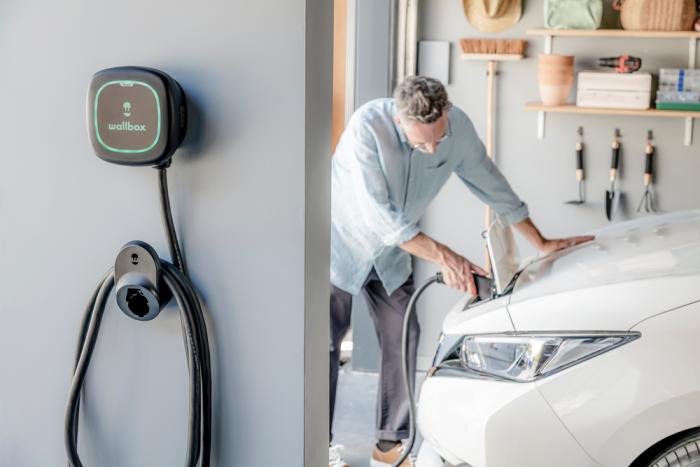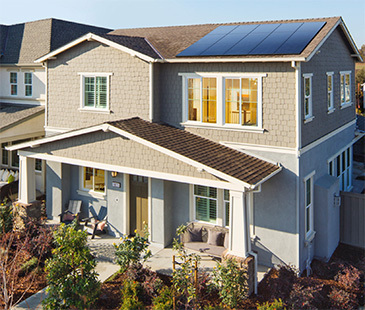
Electric vehicles are rapidly gaining in popularity, with nearly every major manufacturer now offering an EV model. Sales of EVs nearly doubled in 2021. EVs are a great way to save on fuel costs and slash carbon emissions, too. But to gain the biggest benefit from switching to an EV, you need to consider how you’ll power it. EVs powered by solar energy have the sweet advantage of literally “running on sunshine.” But how many solar panels do you need to power your EV for the long haul?
Home vs. public charging
First, let’s look at the way EVs are charged today. You have two basic options: charging your car at home or charging it at a public (or commercial) EV charging station.
About 80% of EV drivers today charge their vehicles from home. And while EVs are great for reducing your fuel needs, charging them increases demand on the electrical grid – no matter what kind of charger you’re using. If the grid running electricity into your home is powered by fossil fuels, your EV will essentially run on the same kind of energy you were trying to get away from in the first place.
If you have a rooftop solar system, however, you can run your EV on 100% clean energy.
Then there’s the fact that having an EV charger at home is much more convenient. Charging your vehicle overnight is much easier than spending part of your day hunting down a public charging station.
How much energy does your EV need to fully charge?
Let’s look at the numbers.
Although it differs some by state, on average, people drive about 14,000 miles per year, according to the Federal Highway Administration. The average EV can go about 3 miles per kilowatt-hour.
So, to power your car all year you’ll need about 4,666 kWh of additional energy (14,000/3 = 4,666).
How many solar panels are needed to offset this additional demand?
Again, a bit of math.
Typically, every kW of solar installed on your roof produces roughly 4 kWh/day, or about 1,500 kWh/year. (This energy production will fluctuate depending on weather conditions, location and seasons, of course.)
So to produce 4,666 kWh of energy you’d need an additional 3.1 kW system, or eight to 12 panels, depending on their power output, to run the average EV purely on solar energy.
If you already have solar on your home, should you add more?
Like all big decisions in life, that depends. If your current solar system is not covering all of your electrical use, it may be worth it to add 3 or more kW on your rooftop as your consumption will increase with EV use. If your solar system is already covering your energy needs, or even over-producing, you could also add a home battery to use some of your solar energy to charge your car at night.
The SunVault® solar battery can be programmed to kick in during times of demand (like when your electric car is charging) to serve your loads from stored solar energy rather than the grid. But most home batteries are smaller than an EV battery, so chances are your energy storage system will be maxed out charging the EV.
If you want to be able to rely on energy storage for power outages, adding some additional solar panels to your solar system may be the answer. Fortunately, SunPower® offers the most efficient solar panels on the market today,*Based on datasheet review of websites of top 20 manufacturers per IHS, as of February 2022. making it easy to put a lot of power on your roof even with a limited amount of space. Whether you decide to add more solar panels or not, SunPower solar systems can help you cut utility costs by generating clean energy during the day. With solar power on your side, your electricity bill should be lower when compared to what you would have to pay without the supplement of solar power.
If you’re buying an EV and you don’t have solar yet, should you go solar first?
Of course, we’re partial to a clean energy approach when it comes to whole home energy. If you’re going to charge your EV at home, your electric bill will increase and solar power can help keep your electricity costs under control. The SunPower Equinox® solar system is a highly efficient, streamlined system that enables you to easily determine the best number of solar panels needed to cover all your energy needs. Plus, SunPower’s world-class network of dealers will be there to help you every step of the way. And don’t forget that you can easily add a SunVault storage system down the road as your needs grow.
Transportation is often called “the last mile” of the decarbonization challenge. Powering your EV with solar energy is an excellent option if you want to do your part for the planet – while saving money on electricity too.

